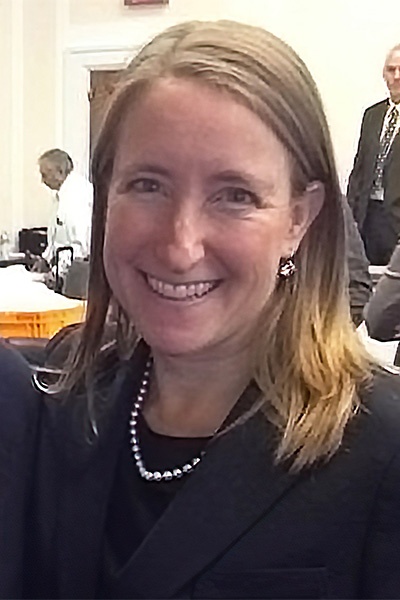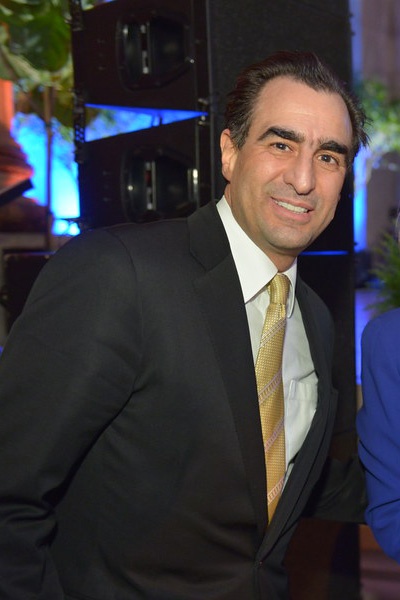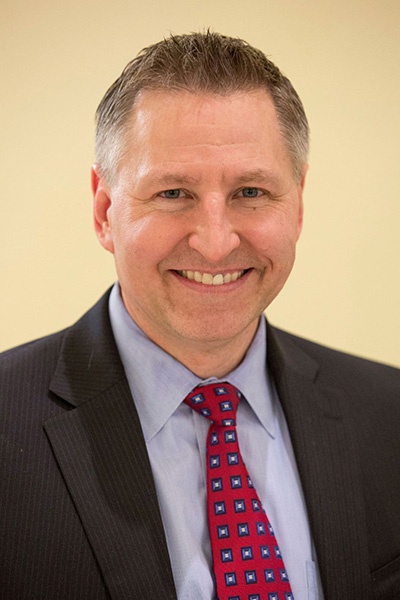The Cancer Letter asked Bertagnolli, Goodman, Knudsen, Manocherian, Retzlaff, Sigal, and Hohman about their expectations of the Biden administration:
What do you expect Biden to do for cancer research when he takes office? Do you expect renewed interest from the White House in continuing the legacy of the Moonshot?
Monica Bertagnolli, ASCO: The president has signaled his continuing interest in strong support of the national cancer research enterprise. We expect that he will leverage the rich insights gained through the Moonshot and will continue his long standing commitment to NIH funding at a level that sustains—or speeds—progress.
Nancy Goodman, Kids v Cancer: President Biden—and it feels so great to say that—has already announced his continued commitment to cancer research. The announcement by the Biden administration that Broad Institute President Eric Lander would be nominated to run the Office of Science and Technology Policy, and the elevation of that office to a Cabinet position spells an increased commitment to science and specifically to cancer research.
I hope that means increased funding and attention to cancer research. Even in the midst of this terrible COVID pandemic, more people are dying of cancer than COVID, so we cannot afford to turn our attention away from cancer research.
Karen Knudsen, AACI: We don’t know exactly what the plans are, or what the structure will look like, for the new administration in the area of cancer, but President Biden and Dr. Jill Biden have personally committed to the fight against cancer being the mission of their lifetime. We look forward to working with the Biden/Harris administration to advance progress against cancer at AACI cancer centers and to developing a plan for recovery due to the COVID-19 pandemic.
It’s likely that another Moonshot will look at diseases that aren’t solved well across individual research grant structures with an eye toward finding different structures to address those diseases.
Jed Manocherian, Act for NIH: President Biden is determined to advance cancer research, promote the sharing of cancer research, and implement policies to advance treatments and cures for patients. Just last Saturday he introduced his science team, including Eric Lander coming on as science advisor, a position which he elevated to a Cabinet-level position.
President Biden discussed his efforts to “end cancer as we know it” through the Cancer Moonshot. He noted that one regret he had about not running in 2016 had been that he wouldn’t be the president to preside over curing cancer, and said that now he was going to do “everything I can to get that done.”
Jon Retzlaff, AACR: We fully expect that President Biden will continue to pursue his previously stated goal of “ending cancer as we know it today.” President Biden understands better than any previous president the promise of incredible advances against cancer that are on the horizon.
He recognizes that if we are to continue to make progress against cancer, it is going to take unprecedented levels of dedication, cooperation, and commitment among all of the various sectors relevant to the cancer field including academia, industry, government, and the patient advocacy community.
Therefore, we are extremely confident that his administration will make cancer research a national priority, which would include advocating for robust and sustained funding increases for the National Institutes of Health, the National Cancer Institute, the Food and Drug Administration, and so many of the other vital federal agencies that play an important role in preventing and treating cancer.
During his time as vice president, as well as while leading the Biden Cancer Initiative after leaving the White House, Biden was passionate, engaged, and informed about all of the various initiatives that were part of the innovative Cancer Moonshot program that he initially spearheaded.
Therefore, because he is so personally invested in making sure that the Cancer Moonshot continues to have an impact on the field, we fully anticipate that President Biden’s interest in and commitment to this national effort against cancer will be a priority for his administration.
Ellen Sigal, Friends: I do expect that the Biden administration will do a lot for cancer research and delivery, and obviously regulatory as well as prevention, but it’s not going to happen right away.
COVID is overwhelming and it’s certainly disproportionately hurting cancer patients. So, I don’t think you’re going to have a cancer drive the first three, four months, but I fully expect that they will definitely move on from the Moonshot and definitely work towards new frontiers, new opportunities.
They will look at, I believe, prevention, research, and execution, and diversity in clinical trials—the things that are really important—underserved communities and how they participate in clinical trials. So, I do expect there will be a new movement or to build on what’s already been done, but I don’t see that at all coming out in the first few months.
What will your organization do to leverage Biden’s advocacy and accelerate progress during his presidency?
Bertagnolli, ASCO: ASCO has a longstanding commitment to see that every patient receives evidence-based care and the best possible outcome.
To that end, we look forward to working with the new administration to assure clinical trials are accessible and efficient, that there is a healthy practice environment to sustain delivery of high-quality care, and that the patient voice is heard.
Specifically, we look to increase NIH funding, address longstanding administrative burden faced by practices, and promote the medical home concept as the care delivery framework that optimizes the patient experience. We also look forward to open dialogue on other complex challenges, including drug pricing.
Professional societies provide the expertise and real-world evidence to inform solutions—and understand policy impact. We are committed to solving problems and ready to begin work.
Goodman, Kids v Cancer: Kids v Cancer stands ready to do whatever the administration may ask of us and the pediatric cancer community.
For our first effort, Kids v Cancer is focusing on the needs of pediatric patients and rare cancer patients to have full screening for novel molecular targets. We are also focusing on the importance of depositing all translational data, including negative studies, in public databases, specifically [NCI’s Childhood Cancer Data Initiative].
With the full implementation of our RACE for Children Act, we are also looking at what needs to be done to ensure that pediatric studies undertaken pursuant to RACE are robust studies of compelling scientific questions.
Knudsen, AACI: AACI has strong relationships with President Biden’s team and looks forward to continued engagement with his administration. We will also continue to cultivate existing relationships with Congressional champions on cancer to assure critical legislation reaches the president’s desk.
Manocherian, Act for NIH: Grant success rates at the National Cancer Institute are historically low and demoralizing to young researchers.
We are delaying and discarding the majority of highly merited research at the greatest time in history for scientific advancement. We will continue our efforts with Congress on our mission to restore and then double the budgets of NIH and NCI.
President Biden is a man of compassion and a champion of science. We are thrilled for the opportunity to work with both Congress and the Biden administration to substantially boost research funding for all dreaded diseases and conditions.
Retzlaff, AACR: The AACR membership, which includes more than 47,000 laboratory, translational, and clinical researchers; physicians and other healthcare professionals; population scientists; and patient advocates, is extremely excited about the opportunity to continue to provide important thought leadership to President Biden and his administration during the next four years.
This is something that AACR members have much experience in doing, as they engaged with Vice President Biden throughout 2016 when he led the Cancer Moonshot effort. AACR and the broader cancer research community often discussed with the vice president many of the potential opportunities for advancing the pace of progress in the fight against cancer.
AACR also hosted Vice President Biden at the 2016 Annual Meeting in New Orleans and again when he was a private citizen at the 2017 AACR Annual Meeting in Washington, D.C., where he spoke out against proposed budget cuts to the NIH and expressed concern that the cuts would discourage young scientists from pursuing the types of projects that have led to significant progress against cancer.
Therefore, our members are extremely excited about the opportunity to re-engage with President Biden and members of his administration to help determine how national resources could best be applied to foster progress against cancer in an expedited time frame.
Sigal, Friends: Our work is ongoing and almost fully deals with cancer—although some of the work we do really has impact on other diseases—but I think that what we are certainly working on is our next phase of our ctDNA Project and a ton of stuff on the books that we’re really looking at.
Even in the midst of this terrible COVID pandemic, more people are dying of cancer than COVID, so we cannot afford to turn our attention away from cancer research.
Nancy Goodman
I think the question begins to be, what’s new and what’s different? And I think one of the things that we’re going to be looking at that is on our plate is the Oncology Center of Excellence at FDA. Now that it has been implemented, now that we have history, is it working, is it a work in progress? What changes need to be made to that?
It’s an area that we spend a lot of focus on, because obviously, the integration of cancer is not only important to the field, but it’s really important at the FDA and, one of the primary things that we worked on for 21st Century Cures and Moonshot was really the regulatory environment for cancer.
And today with the complexity, with CDRH and with biologics, it’s even more important. So, we really want to take on a full evaluation of that. We are looking at the functionality of it. Is it as promised? What changes need to be made? Where do we need to go with this? What’s next?
We certainly are working on some PDUFA issues that we can discuss that we’re really interested in and we are really looking at the full ecosystem and areas where we think we can add value. There’s a huge amount of projects that we have, and if there is new or existing legislation that’s going to happen, also, I think there’ll be new opportunities, legislatively, that may be interesting for PDUFA.
We’re really going to start to look at, again, the clinical trial environment and the complexity around clinical trials, but maybe streamlining trials and really looking at trials in the community system and the inefficiency of some of the trials or the duplication that we’re seeing.
Of course, we always need duplication, but when you look at the checkpoint inhibitors and you look at whether we’re talking about the PD-L1 combinations, whether we’re looking at two or three thousand trials that never reach their endpoints—areas of very significant concern to us.
We want better trials and now, we have the tools to get there. There’s no lack of effort in terms of what we’re doing. We’re still continuing to work on some of our existing projects like Lung-MAP.
Ryan Hohman, Friends: We hit the ground running in the new year with the MODERN Labeling Act being included in the COVID-19 relief bill. And we have our cellular therapies meeting coming up on Feb. 11 where we’re working with Peter Marks [director of FDA’s Center for Biologics Evaluation and Research] and bringing him into immunotherapies and a white paper that we’ll release just before that as well.
We’re back in talks already with the new Senate HELP Committee as they’re getting seated on continuing to look at the diagnostics bill. They’re ready. They’ve signaled just this week that they’re ready to get back in and looking at the VALID Act and figuring out ways to get that going. With all of the vehicles that are coming up in the new Congress, including PDUFA, there’s a lot of opportunity and merging that with an administration excited about science, we have kind of a lot on the plate.
We have our HRD Harmonization Project that’s well underway, and we are continuing to work on real-world evidence and TMB—all things that are in line with the administration’s focus on science and innovation.
Beyond funding for cancer research, what broader policy measures in health care do you anticipate the Biden presidency and a “blue” Congress to prioritize over the next two years?
Bertagnolli, ASCO: Healthcare access and equity is a top concern for ASCO—and recent events have highlighted persistent challenges in these areas.
An important safety net for medically underserved patients is Medicaid. Several states have implemented—or are pursuing—Medicaid policies that could jeopardize care for patients with cancer. We are eager to work with the new administration to assure that access to care is not harmed.
Additionally, access to health insurance remains an issue for many Americans. This is vital for patients with cancer and we are pleased to see that improving access is a priority of the incoming administration.
More specifically, as our nation continues to address the impact of the COVID-19 pandemic, we call on both the administration and Congress to take concrete steps to ensure that patient access to oncology care and cancer research is preserved during and beyond the public health emergency, including increased efficiency and flexibility of clinical trials, increased affordability of ACA Qualified Health Plans, robust reimbursement and coverage of telemedicine, continued suspension of the federal budget sequester, and suspension of mandatory payment models.
These and other recommendations are detailed in our recently released “ASCO’s Road to Recovery Report: Learning from the COVID-19 Experience to Improve Clinical Research and Cancer Care.
Goodman, Kids v Cancer: We have the best researchers, the best hospitals and the best biotech and pharmaceutical industry in the world. However, good health care is out of reach of so many Americans who do not have health insurance, or who cannot afford to use their health insurance.
I hope the Biden administration strengthens the Affordable Care Act. I hope we one day have full insurance coverage for all Americans. I hope we can figure out how to manage rising healthcare costs.
Knudsen, AACI:
Addressing health equity and cancer disparities
Undoing damage inflicted by COVID-19 on cancer screening, prevention, clinical trial enrollment, research progress
Expanding coverage of telehealth and ensuring insurance coverage parity
Strengthening the underfunded aspects of the previous administration’s pediatric cancer initiatives and data system
Manocherian, Act for NIH: It is only through the tremendous promise of science that we will find solutions to the most intractable diseases and conditions, and rein in sky-rocketing healthcare costs that are on a path to bankrupt the federal government.
Retzlaff, AACR: We would like to see the Biden administration also act to prioritize efforts to eliminate cancer disparities in racial and ethnic minorities and other underserved populations.
The AACR stands ready to work with the Biden administration on this important goal, especially since we recently unveiled the landmark “AACR Cancer Disparities Progress Report 2020: Achieving the Bold Vision of Health Equity for Racial and Ethnic Minorities and Other Underserved Populations” at a virtual Congressional briefing on Capitol Hill on September 16, 2020.
Additionally, as a scientific organization focused on the conquest of cancer whose core values include equality, diversity, and inclusion, the AACR is also fully committed to taking on a much bigger role in confronting and combating systemic racism and racial inequities across the entire cancer research and patient care enterprise, and we would be happy to contribute to the initiatives and policies that we expect the president to propose to achieve equity, unity, and justice for all.
Sigal, Friends: I think real-world evidence is an area that we’ve spent a huge amount of time on. We’ve just finished a call with the Reagan-Udall Foundation where Amy Abernethy [principal deputy commissioner at FDA] talked about the Friends contribution and what we’ve done to advance that field—because patients are treated in a community setting and we need to understand what’s really happening outside of clinical trials.
So, that’s an area of significant importance and growth and opportunity, and complexity. We’ll continue our work on the COVID accelerator. We are talking with FDA and Reagan-Udall and we’ve been doing a lot of work on therapeutics and diagnostics. That’s another workflow for us, but that’s really real-world evidence and that’s a big deal.
Hohman, Friends: Touching on expanding clinical trial access and eligibility, our work on eligibility criteria with ASCO, Stand Up To Cancer, and the Black Women’s Health Imperative on access for Black women in clinical trials will continue to expand. And those are all things that this administration has signaled that they’re going to be keenly focused on with expanding clinical trials and access for patients.
Do you expect the Biden administration to change the trajectory of the COVID-19 pandemic in the U.S.? What would that mean for millions of vulnerable Americans, including cancer patients?
Bertagnolli, ASCO: All Americans, including patients with cancer, have felt the dire impact of this pandemic. Reversing this trajectory is clearly a top priority of the Biden team. ASCO has developed extensive resources for providers and patients worldwide and recently published a wide range of recommendations for the road to our national recovery, mentioned above. We stand ready to support the new administration in these efforts.
Goodman, Kids v Cancer: Absolutely, and I am so relieved.
Knudsen, AACI: With President Biden’s goal of 100 million vaccinations in the first 100 days of his administration, AACI expects that the trajectory of the pandemic will shift in the coming months.
As part of its effort to combat the pandemic, AACI cancer centers are involved in the administration of vaccines and are looking forward to continuing this under the new administration.
Manocherian, Act for NIH: The U.S. just passed an appalling milestone of 400,000 COVID-19 deaths. President Biden laid out a robust COVID-19 funding and policy relief plan last week, including improvements in vaccine distribution, and said he was going to “manage the heck” out of it, so we’re hopeful and optimistic that the new administration will be able to change the trajectory of the pandemic.
This will make a world of difference for millions of Americans, including cancer patients and those who have seen clinical trials postponed, in terms of their health, but also in terms of lifting the black cloud that has been over our economy and our society for the past year.
It is only through the tremendous promise of science that we will find solutions to the most intractable diseases and conditions, and rein in sky-rocketing healthcare costs that are on a path to bankrupt the federal government.
Jed Manocherian
Retzlaff, AACR: Yes, we are extremely confident that the Biden administration will change the trajectory of the COVID-19 pandemic, especially because of how laser-focused the president and his team are to ending this pandemic through a science and evidence-based policymaking process.
Science is what is going to lead us out of this national—and international—nightmare, and President Biden possesses a willingness to listen to the experts on important matters in science.
In addition, President Biden’s commitment to focusing on the COVID-19 pandemic from day one in the White House, and his plan to distribute 100 million vaccines in 100 days will also help ensure that those Americans who are at greater risk for serious illness or death from COVID-19, most especially patients with cancer, will be provided priority access to the lifesaving COVID-19 vaccines.
Sigal, Friends: Definitely. I think they’re going to clearly accelerate not only the distribution of the vaccine, but also, for sure, diagnostics in areas that have been really woefully short. So, that’s going to be really important—vaccines, and therapeutics—but I think that we’re going to learn a lot, unfortunately, from COVID.
How do we get into the community faster, and to get meaningful treatments that are important? And look at the full infrastructure that we have and the bifurcated healthcare system we have in our country that is really complex for delivery mechanisms.
I think we’re going to gain a lot and, of course, we’re going to see perhaps more efficiency in how we work, and also more urgency in helping cancer patients.
Is there anything we forgot?
Goodman, Kids v Cancer: I’d like to add how excited I am that Janet Woodcock [director of FDA’s Center for Drug Evaluation and Research] is acting FDA commissioner. I hope she will be named the permanent commissioner.
I hope she will accept the nomination. She has served as an intellectual guide at the FDA for decades and has made the world a better place.
Manocherian, Act for NIH: Over the past two centuries, at least half of all economic growth can be attributed to advances in public health and medicine that have led to longer, healthier lives.
Investment in medical research stimulates economic growth by driving innovation, creating jobs, and improving America’s global competitiveness.
Retzlaff, AACR: As vice president, Joe Biden helped to begin a national conversation on the progress, promise, and potential of cancer research as he dedicated his enormous energy to “a moonshot in this country to cure cancer… an absolute national commitment to end cancer.”
Now, as president, Biden once again has another amazing opportunity to lead a nationwide effort to propose even more innovative ways to aggressively accelerate advances in cancer research for the benefit of patient care.
The AACR is extremely committed and dedicated to working with President Biden to take all of the necessary steps to change the future for all affected by cancer.
Sigal, Friends: We’re happy to see that the new administration has focused on science, it cares about research, and we’re very optimistic that we’ll get through this.
When we get through this, we will have learned a lot and we’ll have opportunities to really expand science and healthcare delivery and cancer research, which is always our major focus.



















